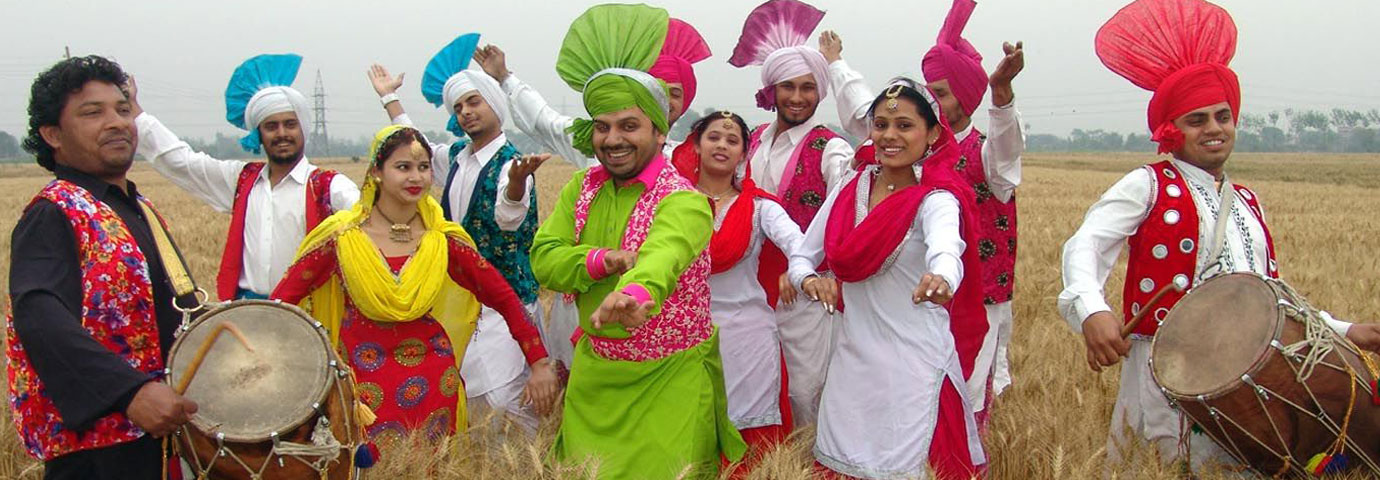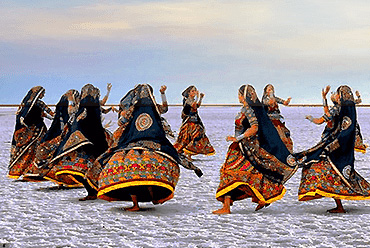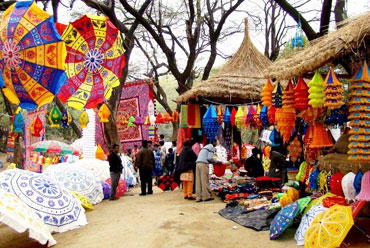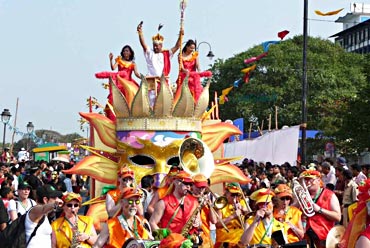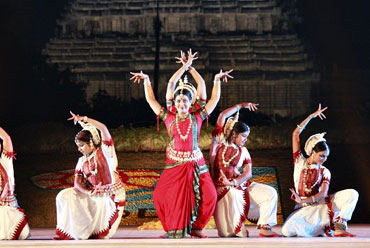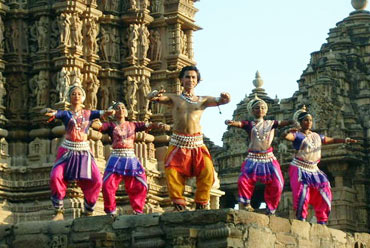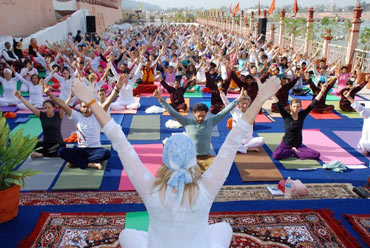The Festival
Several Indian festivals coincide with the harvest time and Baisakhi is one of them. Baisakhi is celebrated by the people of Punjab with vigor and joy. It is celebrated by different names and with different rituals almost all over India, when the Rabi crop is ready for harvesting. Baisakhi is also the day when the tenth Guru of the Sikhs, Guru Gobind Singh, founded the Khalsa Panth over three hundred years ago.
Time Of The Year
The Vaishakha period of April and May is filled with festivals of fun, frolic and merry-making and Baisakhi, derived from the word Vaishakh, falls in this auspicious period. Based on the Indian solar calendar, this festival falls on April 13 every year and on April 14 once every 36 years.
Celebrations
Baisakhi is a harvest festival and the tough agricultural operation of harvesting is rendered into a lighter occupation by many community festivities such as the Bhangra dance by men, who pound the ground with vigorous steps to the accompaniment of traditional music. Women too, break into the revelry of dances, principally the Gidda dance, executed with fervor and rhythmic exactitude. On these occasions, men and women adorn themselves with gay colored clothes and traditional jewelry. Generally, the sites of these festivities are the banks of rivers, which have their sacred import with myths and legends woven around their origin and names.
A combined birthday for all the Sikhs, they celebrate this day by visiting gurudwaras and distributing kada prasad among all. Processions led by the Panj Piaras or the five religious men are taken out. Children, dueling youths and musical bands are a must for these enthusiastic processions. Kirtans and recital of passages from the Granth Sahib are also organized in gurdwaras, where people line up to receive the delicious kada prasad and perform kar sewa. Kar sewa is offering physical labor to help in the daily chores of the gurdwara and is a traditional symbol of humility for all Sikhs.
Rituals
Basically a farmers' festival, Baisakhi is a time to enjoy before beginning the hard work of harvesting and as such, its celebration requires no prayers or fasting. However, people do go to temples after taking a bath in the nearby river.
The Sikhs offer prayers in gurudwaras to commemorate the founding day of their religion. The Granth Sahib, which was designated the eternal guru of Sikhs by Guru Gobind Singh, is taken out in procession and kirtans are organized in gurudwaras.
Legends
Baisakhi has a special meaning for the Sikhs. On this day in 1699, their tenth Guru, Gobind Singh, organized the order of the Khalsa. He discontinued the tradition of Gurus in Sikhism by declaring the Granth Sahib to be the eternal Guru of all Sikhs. To form the Khalsa Panth he asked his followers to volunteer to be ready to lay down their lives to save others. Five volunteers of five different castes were made the Panj Piaras, who would lead the rest. On this day also, Guru Arjan Dev was martyred by the Muslim rulers who, in barbaric cruelty, threw him alive into a cauldron of boiling oil. Again, on this day in 1875, Swami Dayanand Saraswati founded the Arya Samaj-a reformed sect of Hindus who are devoted to the Vedas for spiritual guidance and have discarded idol worship. This day is of immense religious import to the Buddhists because Gautam Buddha attained enlightenment or Nirvana under the Mahabodhi tree in the town of Gaya on this auspicious day. The day is also known, as Buddha Purnima is some parts of the country.
Regional Celebrations
Baisakhi day is observed as the Naba Barsha (New Year) in Bengal. On April 14, the people take a ritual bath in the River Ganga or any other river or a nearby tank and decorate their houses with rangoli (floral patterns) drawn at the entrance of their homes with a paste made of rice powder.In Assam, this is the day for the Rongali Bihu, which is a chance for the young people of the state to dress up in their traditional finery and dance the night away. There too, this is the harvest festival, which allows the farmers to relax and enjoy before they take up the task of harvesting their crop.
Baisakhi festival is celebrated twice a year in Himachal Pradesh in the honor of Goddess Jwalamukhi. In the months of Vaishakha (April-May) and Kartika (November), the Himachalis worship the Goddess whose image near a hot spring issues forth flames.
In the South, Baisakhi is celebrated to mark the Tamil and Telugu New Year. In a ceremonial march, people take out wooden chariots in a procession. The temples in Kerala celebrate Pooram festivals usually in honor of Vishnu at this time. Among them, the Pooram observed in the Vaddakunathan Swamy (Shiva) temple of Trichur is famous.
The state of Bihar state celebrates a festival in Vaishakha (April) and Kartika (November) in honor of the Sun God, Surya, at a place called Surajpur-Baragaon. This is essentially a village where, according to an ancient practice, people bathe in the temple tank and pay obeisance to the Sun God while offering flowers and water from the sacred river Ganga.
Places To Visit
Though most of the states celebrate this time of the year, to witness the rich tradition and colorful festivities of Baisakhi, Punjab is the place to be. The traditional bhangra and gidda, the procession of the Panj Piaras and the taste of the kada prasad can be experienced only in Punjab.

